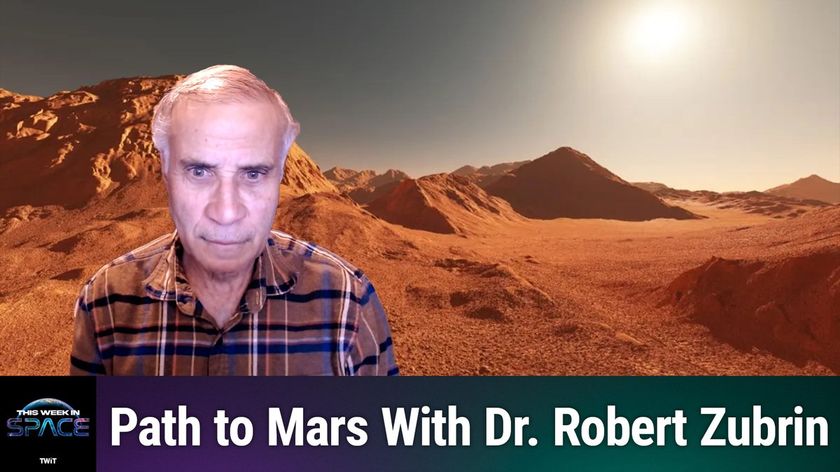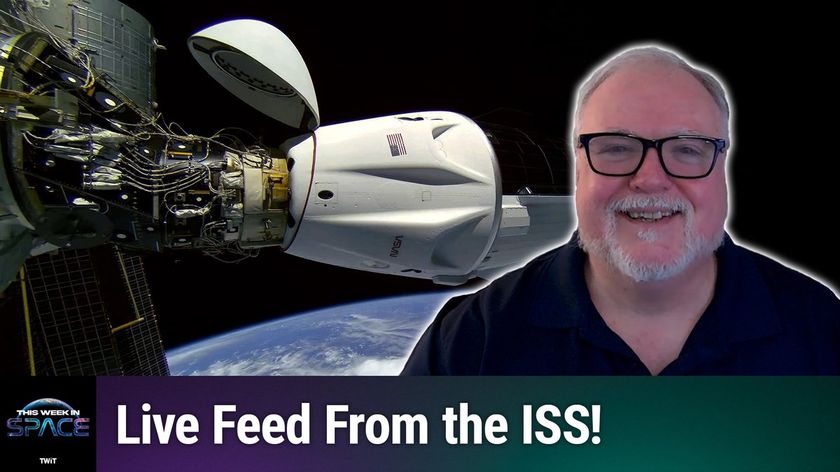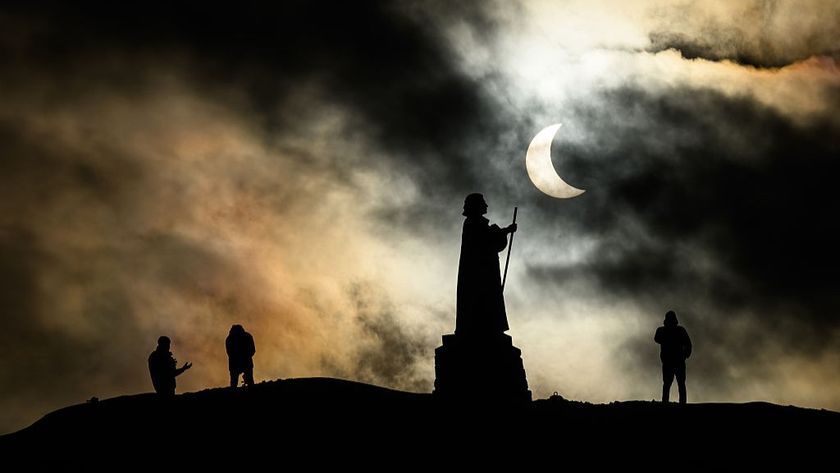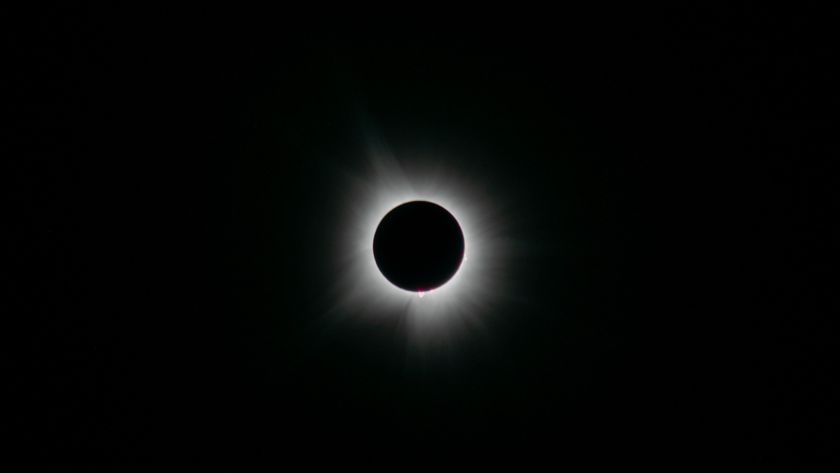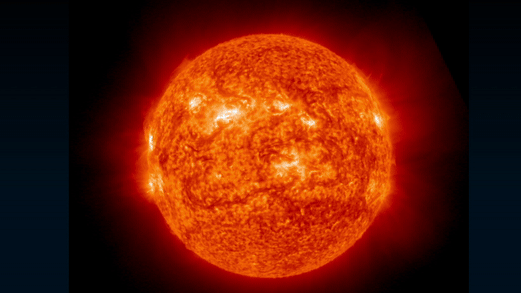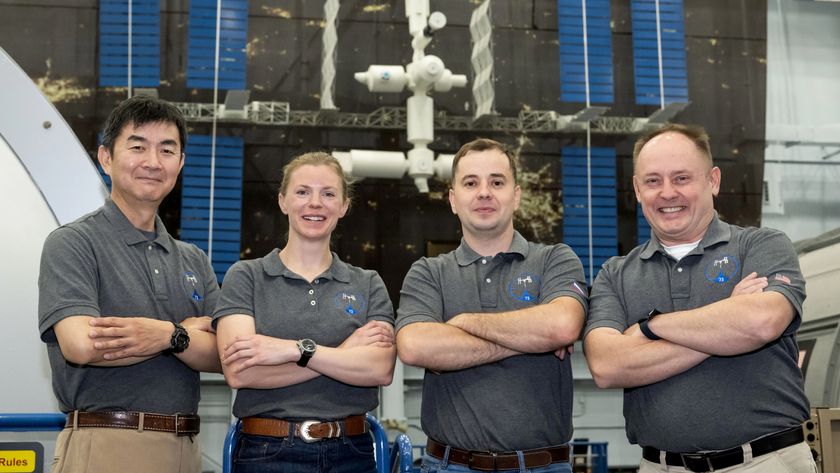Syfy's 'Nightflyers' Terrifies with George R.R. Martin Space Story
NEW YORK — The upcoming "Nightflyers" television series premieres on Syfy network on Dec. 2 and promises to merge deep-space travel with horror.
Guests at New York Comic Con were invited to an early screening of the drama's first episode on Oct. 5. "Nightflyers" is based on the 1980 novella of the same name by George R.R. Martin, best-known for creating "Game of Thrones." Before the screening, Space.com spoke with the producers and talent behind the new show.
"I read the novella, and it's interesting and unsettling," said Gretchen Mol, a lead actor in the show. Actor David Ajala was also taken aback by the original story. "Reading the novella was super interesting, because it's a horror story on a spaceship. There's the aesthetic kind of horror … but then there's also, I feel, a psychological horror." [Cosmos: Possible Worlds' Creators Preview New TV Series at Comic Con]

Set in 2093, "Nightflyers" follows a crew driven to travel to the outer edges of the solar system because of Earth's poor state. The premiere begins in the middle of a violent showdown between two characters we later learn more about, and as a whole, the episode offered cool microgravity floating, and a twinge of fleeting romance and certainly some ominous tones.
While nearing the solar system's edge over the course of the series, the spacefarers attempt to make first contact with extraterrestrials.
Though the alien horror may be fantastic, the unfortunate state of Earth rings true today: Thousands of experts and government reviewers worldwide contributed to a recent U.N. Intergovernmental Panel on Climate Change special report, which found "warming of 1.5 [degrees Celsius, or 2.7 degrees Fahrenheit] or higher increases the risk associated with long-lasting or irreversible changes, such as the loss of some ecosystems."
Several creators cited themes of space-travel and horror from the 1979 movie "Alien" as early sci-fi inspiration in their lives. Lead actor Eoin Macken said he writes science fiction of his own and believes that space movies and this show tackle philosophical questions like the nature of selfishness.
Get the Space.com Newsletter
Breaking space news, the latest updates on rocket launches, skywatching events and more!
"As humans, we always sort of regress to making it about ourselves," Macken said. "How far are you willing to sacrifice yourself? That [choice] could actually have a rebound effect … the very nature of bringing an alien back and engaging with it then can threaten everybody else."
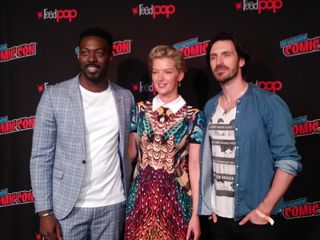
Jeff Buhler wrote the "Nightflyers" adaptation for television and is the series' showrunner and executive producer. As a fan of science fiction and horror, he said he thinks the two genres are compelling in and of themselves but can also tackle relatable topics, like isolation and claustrophobia, for general audiences. "You can't move out of the spaceship, "Buhler said, describing how the show evokes those feelings. "You're on it." [Space Stress: How 1-Year Mission Is Studying Astronaut Health]
"No one goes to sleep and wakes up when they get to where they're going" on deep-space voyages like what the show depicts, he added. "It takes months and months with the same people." Even a trip to Mars, the second closest planet to Earth, would take at least six months when the two are closest to one another in their orbits.
If given the opportunity to go to space, most of the show's talent said they wouldn't take the trip. Ajala didn't dismiss the possibility, however. "Baby steps first … but that's an incredible opportunity," he said. Hopefully, getting the chance to go to space won't depend on how much money you have access to, he added.
Follow Doris Elin Salazar on Twitter @salazar_elin. Follow us @Spacedotcom, Facebook and Google+. Original article on Space.com.
Join our Space Forums to keep talking space on the latest missions, night sky and more! And if you have a news tip, correction or comment, let us know at: community@space.com.

Doris is a science journalist and Space.com contributor. She received a B.A. in Sociology and Communications at Fordham University in New York City. Her first work was published in collaboration with London Mining Network, where her love of science writing was born. Her passion for astronomy started as a kid when she helped her sister build a model solar system in the Bronx. She got her first shot at astronomy writing as a Space.com editorial intern and continues to write about all things cosmic for the website. Doris has also written about microscopic plant life for Scientific American’s website and about whale calls for their print magazine. She has also written about ancient humans for Inverse, with stories ranging from how to recreate Pompeii’s cuisine to how to map the Polynesian expansion through genomics. She currently shares her home with two rabbits. Follow her on twitter at @salazar_elin.

